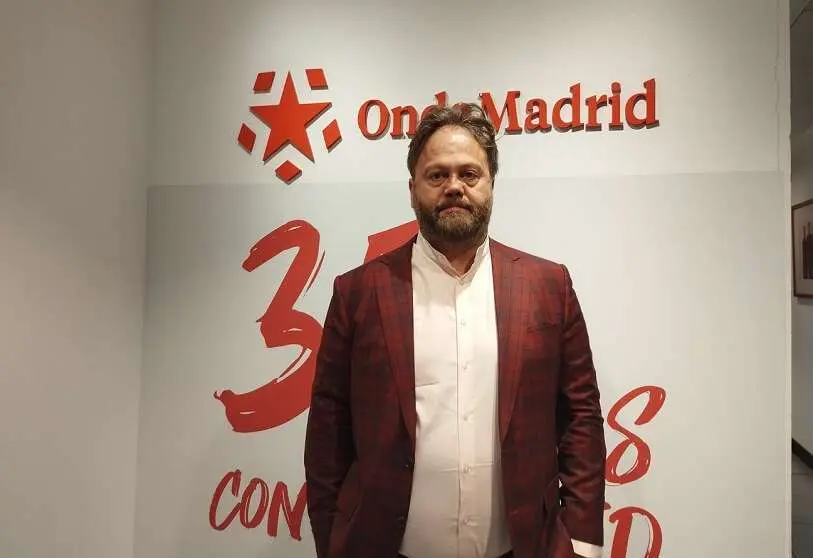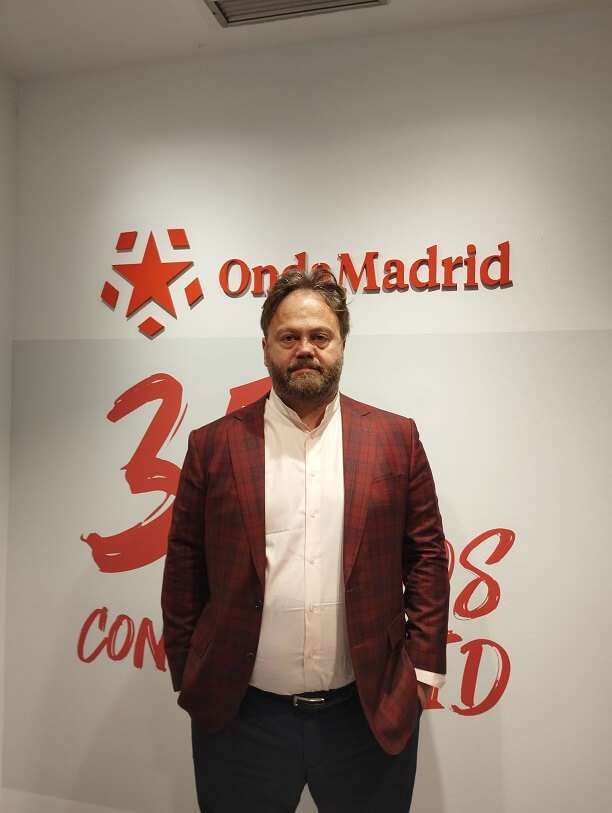Doctors of the World in Turkey and Syria: The aftermath of the earthquake will last at least five years

The earthquakes that shook Turkey and Syria on 6 February have left more than 50,000 dead and a situation whose recovery will be as slow as it is complex. To understand how this is being carried out and how organisations such as Médecins du Monde are contributing in this context, Hakan Bilgin, director of the organisation, talks about the process on the programme "De cara al mundo" on Onda Madrid.
Well, I don't think things are going to change much in the sense that we are going to continue the work we have started with our teams. To give you a little bit of background on who we are, Doctors of the World Turkey, we are in the area, and in Antakya we have had an office for more than 10 years, since the civil war began, and in the Arab Spring that everyone has long forgotten. But we've been there, we've been in the Idlib and Afrin area since the war started and that's why we have an important presence in Antakya with an office that managed all the humanitarian and health activities, of course, because Doctors of the World Turkey, we focus on health. And with the earthquake, what happened is that we were also affected because the teams that we have live in Antakya, and they were busy with their families, their friends, their people. We have lost people from our teams, colleagues, it was very difficult. It's a little bit of a picture of the difficulty and the impact of the earthquake. It was so important that it was very difficult to have a planned reaction, because on paper there are intervention plans, if there is an earthquake. But when you have all the services that are destroyed or when the people who need to give these supports and these services have died or are trying to save lives, people in their own families, and the airports are closed, the roads are closed, it is very difficult. We have seen many people crying in front of the building where they were waiting to get their family members out. And logically they expect you to arrive with 20 qualified people, who know what they are doing, with machinery, with doctors, to save people, but we are talking about two or three thousand buildings.
At Doctors of the World we focus on humanitarian intervention and medical and rescue intervention in the first few days. It's not in our speciality to brag about how buildings have done. But what we have seen is that yes, most of the buildings that fell are buildings that are more than 30 years old. The vast majority and that is an important factor. Then the rest have fallen down because of the aftershocks. It is often difficult for us to understand. Today there is a one-minute 7.8 earthquake and then it stops. That's what happened, it's 7.8 and then all the rest. It goes on and that makes it very difficult for any building to sustain such significant damage. On a day-to-day basis, we slept in the cars outside.

I think it's the fragility of life. We realise how fragile life is. Look, I've been in the humanitarian world for 30 years. I have seen wars, civil wars, earthquakes and tsunamis. I have seen the earthquake in Turkey in '99, in Haiti, in Turkey again and now again in Turkey because 2 years ago we had earthquakes in Izmir. They were much smaller, I mean, but it strips you as a human being. It's just that you're in a situation where you don't really have the capacity to process what you see and what you experience in the moment. It's all so absurd.
Yes, yes, more than the pain, it's the desperation of the people. I think that people, pain... Pain has become something normal. I mean, everyone has pain, we all suffer. But the inability to be able to do anything is the most difficult thing. You are in front of the building where you used to live and you know that there are members of your family inside. But no, you can't do anything. The helplessness is terrifying.
I would like to greet my friends from SAMU in Seville, who have come here with an extraordinary team that has come with a dog and highly trained professionals to help us during the first few days to try to rescue and save lives. And really, every time they went somewhere, we took them with us, and they came out of there with nothing... You see them too, the sadness. It's so difficult. But they go on, they don't get out of there, they go in, they put their lives at risk and try to do something, but they come out of there with nothing or they've seen the worst, and it's super difficult, nobody is prepared, really, to see what we've seen there. I've seen things that nobody was prepared for. It's not that we didn't expect there to be an earthquake or not, but nobody expected that you're going to have in eleven cities in one region at the same time an earthquake of this amplitude. A lot of people who say yes, we knew it was going to happen, but that's been said for 50 years.
I think we have received a lot and I hope we continue to receive a lot, but I want to thank all the people who have really gone out of their way to help, from all the countries. From Spain, from France, from Germany, from the United States, from Japan... We have seen something extraordinary and that is the beautiful part too. Actually everyone is trying to do something, trying to bring something to make a difference, whatever it is. So today what we need is health professionals. We need professionals who can come and work. Because this is not an issue of one month, two months or six months, there we are going to have work for at least the next five years, with qualified people. There are many people I admire who have come to help, and the first few days we have seen many people in the city who have come, they have brought things, and that has also created chaos, because you can't bring hundreds of trucks to a place where all the infrastructure has disappeared and then say that it is not organised. And we don't talk about that. I think it is also important when you were saying that responsibility continues, you have to talk about responsibilities, all that is normal, you have to do it, it is healthy to do it. But we also have to be fair. When we analyse what has happened, what is happening, I have seen many people coming from another country, from another city, with a truck full of food or whatever, they go for three days all over the place and then they leave everything in a corner and take it away. And now we need an intervention by professionals who are going to come, who are going to stay for a while. We have to give these people all the means possible so that they can do their work and benefit the people who need it.
In Syria, we have our clinics, as I said, in Idlib and in Afrin. We have now set up a clinic, a field hospital, which has the capacity to take on the needs of an eighty-bed hospital. And we are there in Jindires with this hospital and it is important that people also understand that the needs inside Syria cannot be compared to what is happening in Turkey, because in Syria there are not such high buildings, there is not such a heavy infrastructure and the earthquake was much more important than what has happened in Turkey. The problem in Syria is that there is no medical infrastructure, no hospitals, no doctors, no doctors to be able to help people who have needs, the most important needs or the minimum needs, and that puts an incredible pressure on the few services that exist. And what we see is that the problem we have inside Syria today is that.







